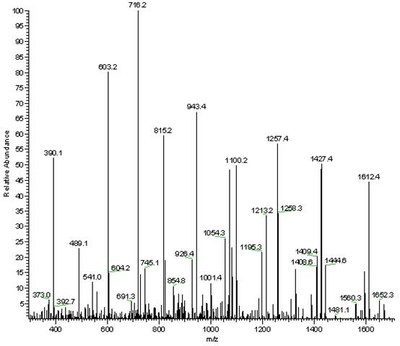Computational Mass Spectrometry
Mass spectrometry has emerged as a key technology for proteomics (the study of the total protein complement of a cell) and metabolomics (comprehensive characterization of the small molecule metabolites in biological systems). Associated with these studies is large volume of complex data. Computational mass spectrometry concerns processing, analyzing, and visualizing the data with the ultimate goal to find biological meaning from the data. Specific questions that are addressed include identification of modified and unmodified proteins using top-down and bottom-up approaches, statistical analysis of identification and quantitation results, protein database search, identification of metabolites, pattern recognition from metabolite fingerprinting, etc.
Currently, there exist many software tools to analyze mass spectrometry data. However, there is a growing need for novel algorithms as mass spectrometers become more powerful and experimental design and the resulting data sets become more complex. One particular example is nutrigenomics (the study of the effect of nutrients on genome, proteome, and metabolome) where computational mass spectrometry is crucial to understand the proteomics and metabolomics data.

Faculty in this Research Area:
Dr. Cory Brouwer, Director Bioinformatics Services Division and Associate Professor
Dr. Xiuxia Du, Assistant Professor